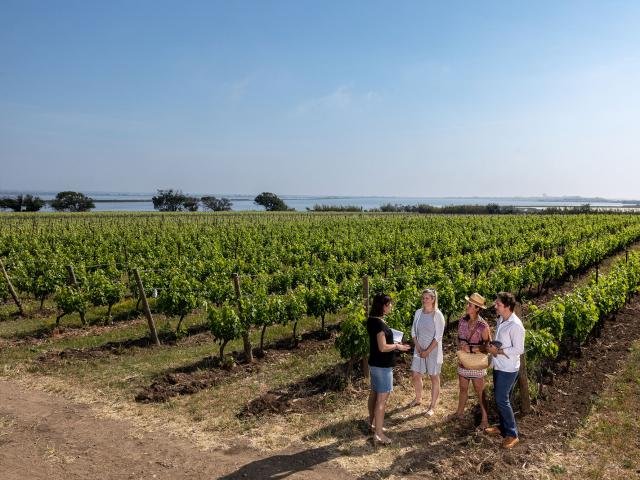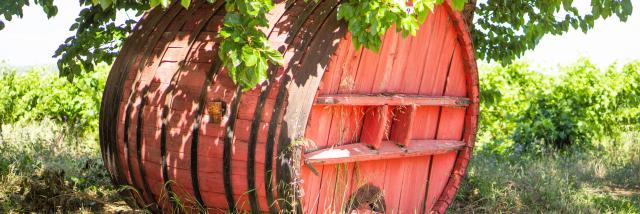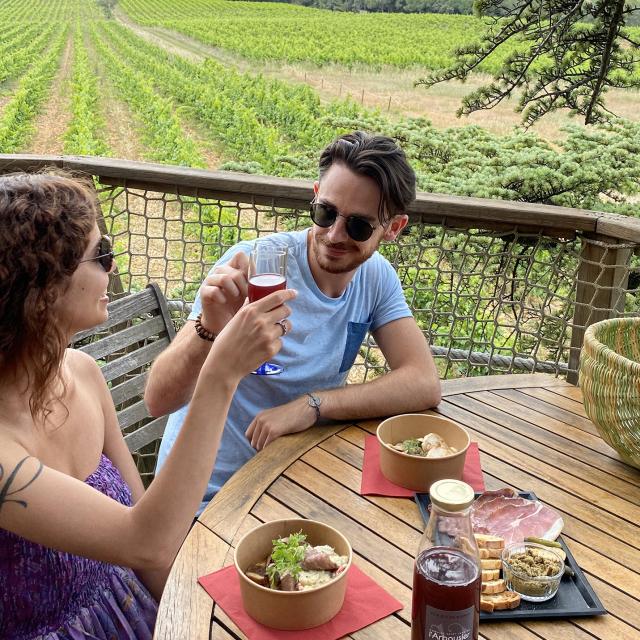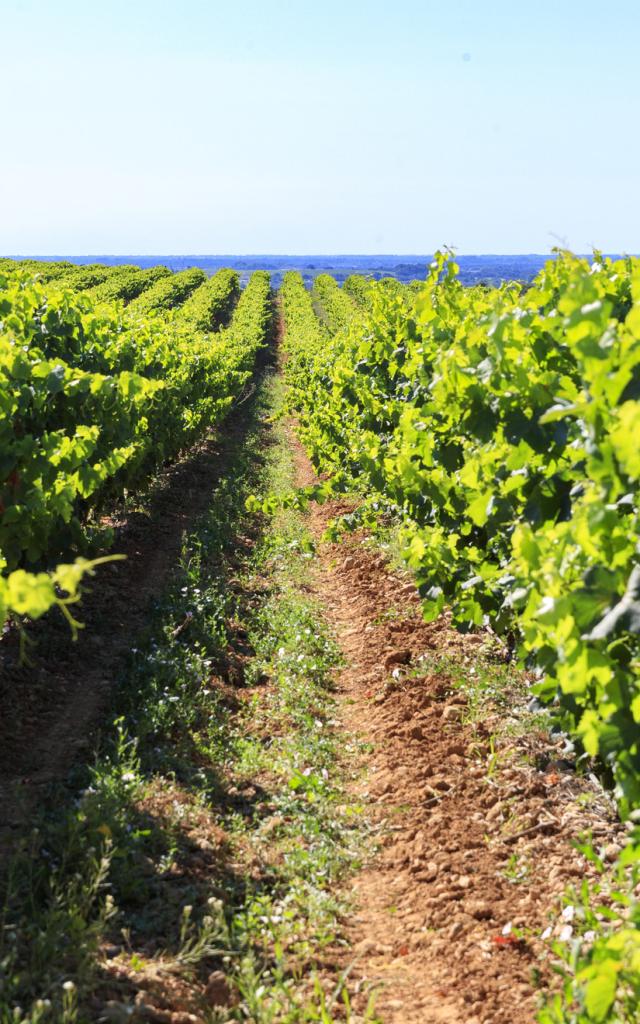 Vigne Engarran
Vigne EngarranMontpellier MéditerranéeWine tourism and vineyards
Experiencesin the vineyards
VINE GROWING LANDsince antiquity
In Languedoc and at the gates of Montpellier, vineyards have always grown as a wild species.
The Greeks decided to labour and cultivate the land. But it was the Romans, when the South of France was a major Gallo-Roman province, who organised the vineyard along the famous Voie Domitienne.
In the 17th century, the reputation of the South of France was at its peak: the wines of Saint- Georges d’Orques were known beyond borders, notably thanks to Thomas Jefferson, one of the fathers
of the constitution of the United States, who exported them back home to Virginia.
Wine venues in town
In the centre of Montpellier itself, the traces of this history can still be detected. Heading towards Peyrou, make a little detour via Rue de la Barralerie, formerly Coopers Lane.
On Place de la Comédie, go back in time and imagine yourself in the early 19th century, on a Tuesday on a café terrace at the wine market, where the Monoprix store currently stands.
Opposite, on the façade of the building known as the “Scaphandrier” [diving suit], you can see the capital which evokes the alliance between wine-growing and industry (bunch of grapes, press and locomotive).
The surprising statue of Jules-Emile Planchon stands proudly in the Planchon square. This academic from Montpellier saved the vineyards in the 19th century thanks to his work on phylloxera and re-introduced American vine plants. This disease of the vine was the ruin of small and large winemakers alike.
Today
Today, the Languedoc is rated among “the best vineyards in the world”. Winemakers abound with ideas, energy and passion to create iconic wines or wines to taste with friends. They also open their doors to welcome you. There are around 50 wine estates in the Montpellier Méditerranée region.
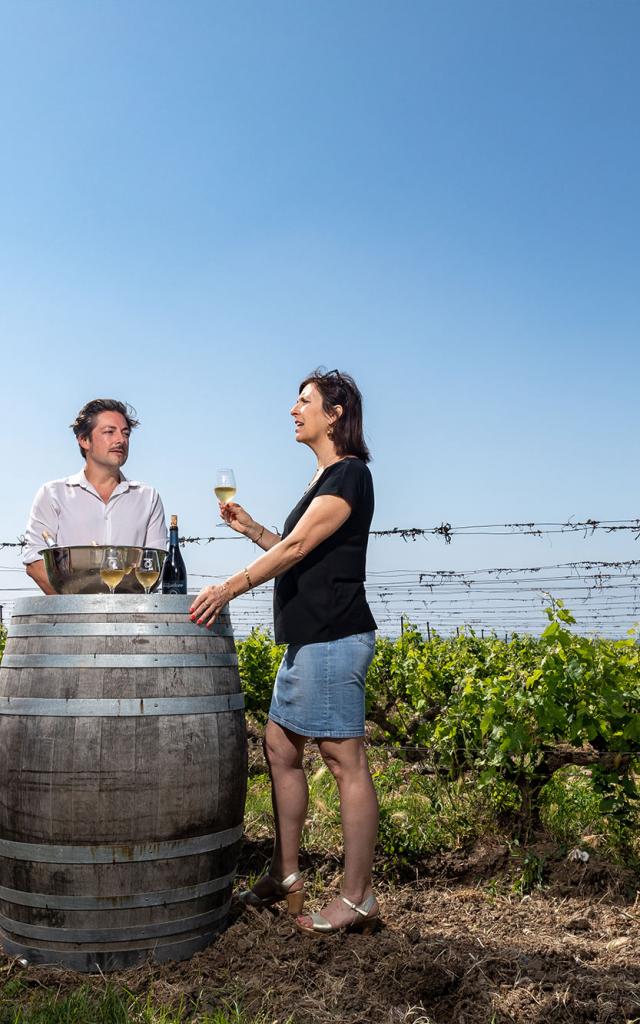
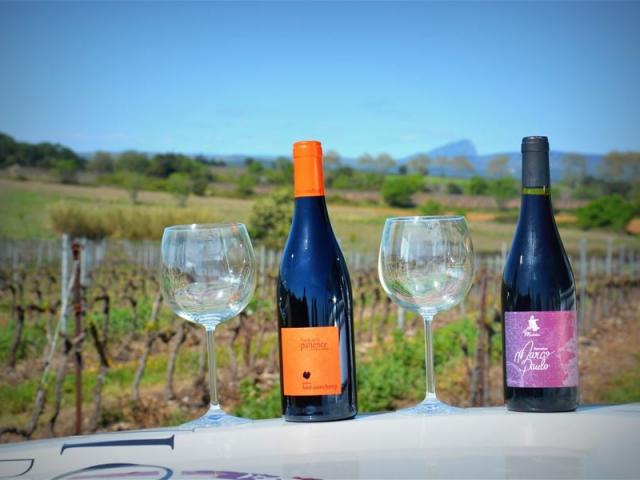
The vineyards of Montpellier include :
- AOP Languedoc,
- AOC Languedoc Saint-Drézéry
- AOC Languedoc La Méjanelle,
- AOC Languedoc Saint-Georges d’Orques,
- and the AOC Languedoc Grès de Montpellier
- as well as 5 PGIs: IGP Pays d’Oc, IGP Terres du Midi, IGP de l’Hérault, IGP Pays d’Hérault Collines de la Moure, IGP Saint-Guilhem-le-Désert.*
* AOP = Protected Designation of Origin (PDO), AOC = Controlled Designation of Origin, IGP = Protected Geographical Indication (PGI)
Red wine reigns supreme but white and rosé wine are made here too.
The main grape varieties are grenache, mourvèdre, syrah, carignan, cinsault, viognier, roussanne and marsanne.
Did you know
In 1787, the young American ambassador to France, Thomas Jefferson, on a visit to the region, cited the wine of Saint-Georges d’Orques as one of the best wines tasted in France. When he became President of the United States, he put this wine on the table of the White House.

